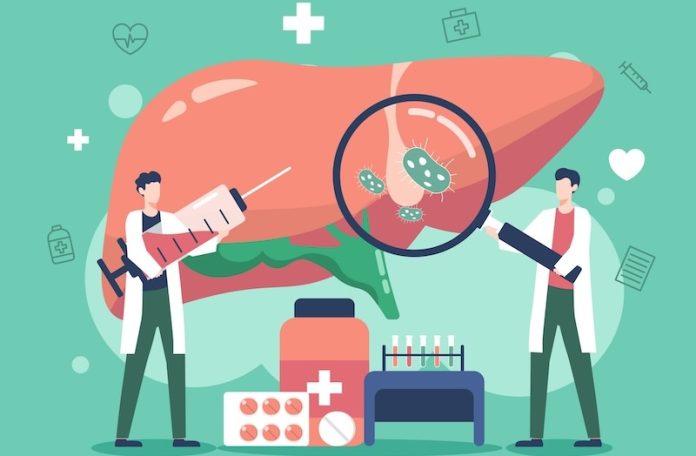
The liver is a vital organ that performs many important functions, such as filtering toxins from the blood, aiding digestion, and storing energy.
Unfortunately, the liver can be affected by various diseases that can impair its function and lead to serious health problems. Here, we’ll explore some common liver diseases, their causes, and what research says about them in simple terms.
One of the most well-known liver diseases is hepatitis. Hepatitis is an inflammation of the liver, most commonly caused by viral infections. There are several types of viral hepatitis, including hepatitis A, B, and C.
Hepatitis A is usually spread through contaminated food or water, and it often causes a short-term illness. Hepatitis B and C, however, are more serious and are typically spread through contact with infected blood or other body fluids.
Chronic hepatitis B and C can lead to long-term liver damage, cirrhosis (scarring of the liver), and even liver cancer. Vaccines are available for hepatitis A and B, but not for hepatitis C, making prevention and early detection crucial.
Another common liver disease is fatty liver disease. This condition occurs when fat builds up in the liver cells. There are two main types: non-alcoholic fatty liver disease (NAFLD) and alcoholic fatty liver disease.
NAFLD is more common and is often associated with obesity, diabetes, high cholesterol, and poor diet. It can lead to more serious conditions like non-alcoholic steatohepatitis (NASH), where the liver becomes inflamed and damaged.
Research has shown that losing weight, eating a healthy diet, and exercising regularly can help manage and even reverse NAFLD. On the other hand, alcoholic fatty liver disease is caused by excessive alcohol consumption.
Cutting back on alcohol or quitting altogether is essential for preventing further liver damage.
Cirrhosis is another significant liver disease to be aware of. Cirrhosis occurs when healthy liver tissue is replaced by scar tissue due to long-term damage. This scarring can block blood flow through the liver and impair its ability to function.
Cirrhosis can result from various causes, including chronic hepatitis, long-term alcohol abuse, and NAFLD. Early stages of cirrhosis might not show symptoms, but as it progresses, it can lead to complications like liver failure and liver cancer.
Research highlights the importance of early diagnosis and treatment of the underlying causes to prevent cirrhosis from developing.
Liver cancer is a serious and potentially life-threatening liver disease. The most common type is hepatocellular carcinoma (HCC), which often develops in people with chronic liver diseases like hepatitis B or C and cirrhosis.
Risk factors for liver cancer include chronic viral hepatitis, heavy alcohol use, and exposure to certain toxins like aflatoxins, which can contaminate food. Regular screenings for people at high risk can help detect liver cancer early when treatment is more effective.
Advances in research have led to better treatments, including targeted therapies and immunotherapies, offering hope for improved outcomes.
Autoimmune liver diseases, such as autoimmune hepatitis, primary biliary cholangitis (PBC), and primary sclerosing cholangitis (PSC), occur when the body’s immune system mistakenly attacks the liver.
These conditions can cause chronic inflammation and damage to the liver cells and bile ducts. The exact cause of autoimmune liver diseases is not well understood, but genetics and environmental factors likely play a role.
Treatments often involve medications to suppress the immune system and reduce inflammation, and research continues to explore new therapeutic options.
Another liver condition to watch out for is hemochromatosis, a genetic disorder that causes the body to absorb too much iron from food. The excess iron can build up in the liver, causing damage over time.
If left untreated, hemochromatosis can lead to cirrhosis, liver cancer, and other complications. Early diagnosis through blood tests and genetic screening is essential, and treatment usually involves regularly removing blood to reduce iron levels.
In conclusion, various liver diseases, including hepatitis, fatty liver disease, cirrhosis, liver cancer, autoimmune liver diseases, and hemochromatosis, can affect liver health.
Understanding these conditions, their causes, and early signs can help in prevention and early treatment. Maintaining a healthy lifestyle, getting vaccinated, avoiding excessive alcohol, and regular medical check-ups are key steps to protect your liver and overall health.
Research continues to advance our knowledge and treatment options for these liver diseases, bringing hope for better management and outcomes.
If you care about liver health, please read studies about a diet that can treat fatty liver disease and obesity, and coffee drinkers may halve their risk of liver cancer.
For more information about liver health, please see recent studies that anti-inflammatory diet could help prevent fatty liver disease, and results showing vitamin D could help prevent non-alcoholic fatty liver disease.
Copyright © 2024 Knowridge Science Report. All rights reserved.



